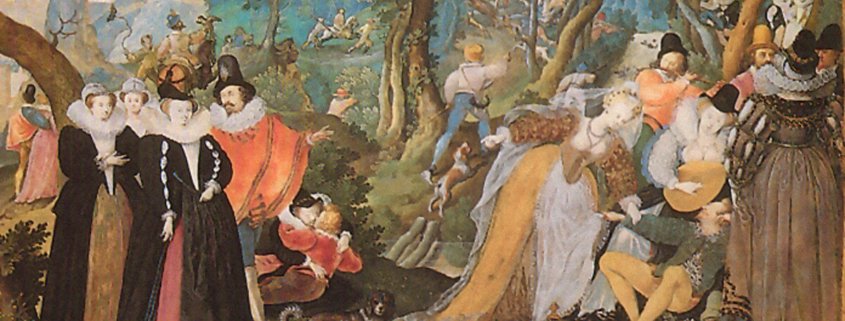Merry Wives and the Sonnets
In Sonnet 129 Shakespeare explores the theme:
The expense of spirit in a waste of shame
Is lust in action; and till action, lust
Is perjured, murderous, bloody, full of blame,
Savage, extreme, rude, cruel, not to trust;
Enjoyed no sooner but despisèd straight:
Past reason hunted; and no sooner had,
Past reason hated, as a swallowed bait,
On purpose laid to make the taker mad:
Mad in pursuit, and in possession so;
Had, having, and in quest to have, extreme;
A bliss in proof, and proved, a very woe;
Before, a joy proposed; behind, a dream.
All this the world well knows; yet none knows well
To shun the heaven that leads men to this hell.
This high tensile unrest is one of the central features of the sonnets written, supposedly, to Shakespeare’s Dark Lady. It is something that Shakespeare never tired of, the way all those complex rationalizations, emotional thrusts, understandings and misunderstandings work together to create human interaction and its treatment in art.
Here are two of the Dark Lady sonnets that take us right to the heart of perception and deception, to the point where the impact of love and of sexual desire is to distort our perception of the truth and even the truth itself.
Sonnet 137
Thou blind fool, Love, what dost thou to mine eyes,
That they behold, and see not what they see?
They know what beauty is, see where it lies,
Yet what the best is take the worst to be.
If eyes corrupt by over-partial looks
Be anchor’d in the bay where all men ride,
Why of eyes’ falsehood hast thou forged hooks,
Whereto the judgment of my heart is tied?
Why should my heart think that a several plot
Which my heart knows the wide world’s common place?
Or mine eyes seeing this, say this is not,
To put fair truth upon so foul a face?
In things right true my heart and eyes have erred,
And to this false plague are they now transferr’d.
Sonnet 138
When my love swears that she is made of truth
I do believe her, though I know she lies,
That she might think me some untutor’d youth,
Unlearned in the world’s false subtleties.
Thus vainly thinking that she thinks me young,
Although she knows my days are past the best,
Simply I credit her false speaking tongue:
On both sides thus is simple truth suppress’d.
But wherefore says she not she is unjust?
And wherefore say not I that I am old?
O, love’s best habit is in seeming trust,
And age in love loves not to have years told:
Therefore I lie with her and she with me,
And in our faults by lies we flatter’d be.





Leave a Reply
Want to join the discussion?Feel free to contribute!